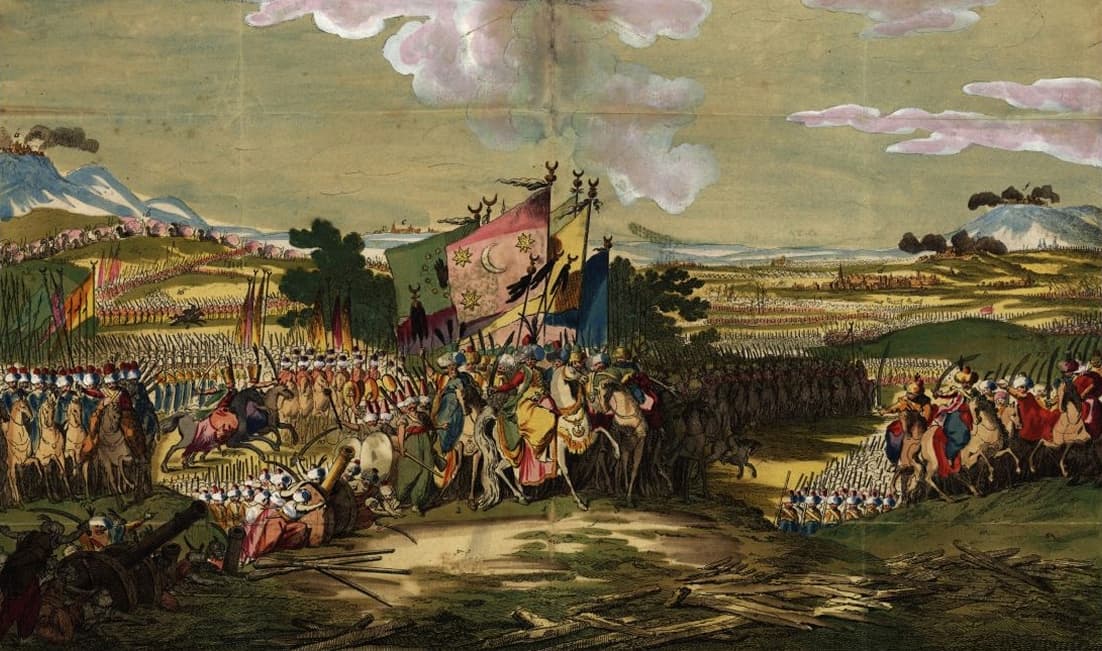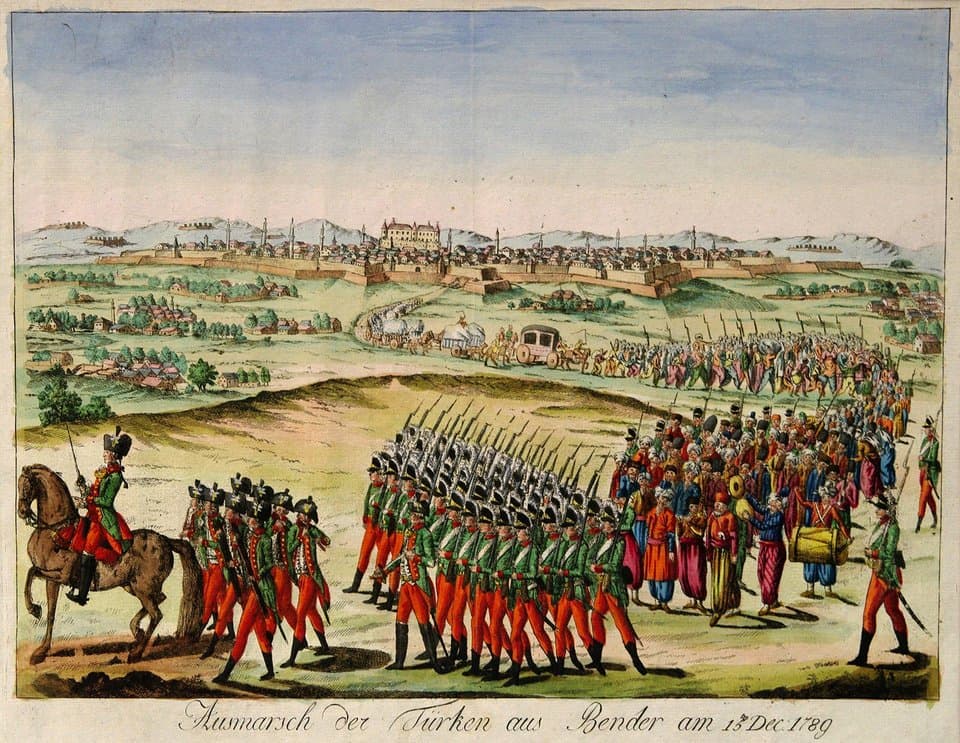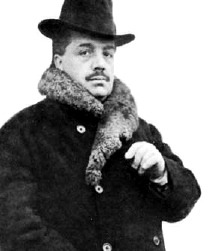When the Austrian Emperor Joseph II declared war on Turkey in 1788, a new tax mechanism was put into place to fund the war machinery. Citizens had to prepare an official tax declaration and hand the paperwork to the relevant authorities. To vent their frustration, hundreds of people from various social classes and occupations submitted their tax returns and found humorous arguments as to why they should be exempt from paying the pointless “Frog Tax.”

Austro-Turkish War
The tax return of an executioner reads, “Since the highly acclaimed Enlightenment, there are no more heads to be chopped off, so my business is completely dead.” And the tax return of a Freemason reads, “My wealth is a secret.” There was even a highly popular satirical play called “The War Tax.” In addition, a collection of “Austrian and Turkish War Songs” that opposed the emperor was published, and exemplified the spirit of rebellion against Joseph II’s politics.
To war! This joyous celebration
In your honour we put on.
Now take your plague and your starvation
And from this place begone!
What have I then from Fatherland
To pay the ultimate price?
My life! Gone to a Turkish band!
Say, brother, ain’t that nice?

Retreat of Turkish Forces
Wolfgang Amadeus Mozart was sympathetic to the cause of this satirical rebellion and a pre-publication subscriber of the anti-war song anthology. And he even set to music a poem written by the dilettante writer Wilhelm Ludwig Gleim. The melody to “Ich möchte wohl der Kaiser sein,” (I’d like to be the emperor) was composed on 5 March 1788, and the popular comedian Friedrich Baumann performed it two days later. Apparently, Mozart borrowed and modified a melody from an aria by Joseph Haydn. That text of the Haydn aria reads, “Nor does stupidity like to be alone; everything goes better by twos. Listen, my dear people, it’s the same today as it ever was, the world is full of foolishness.” By alluding to the Haydn text and melody and incorporating janissary musical elements, that song was to be understood as a pure parody.
For more of the best in classical music, sign up for our E-Newsletter

